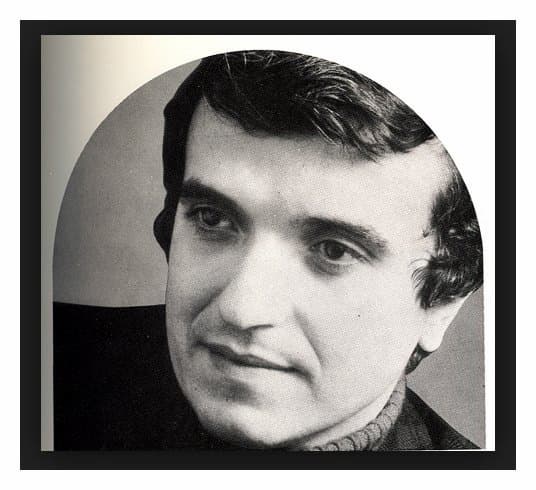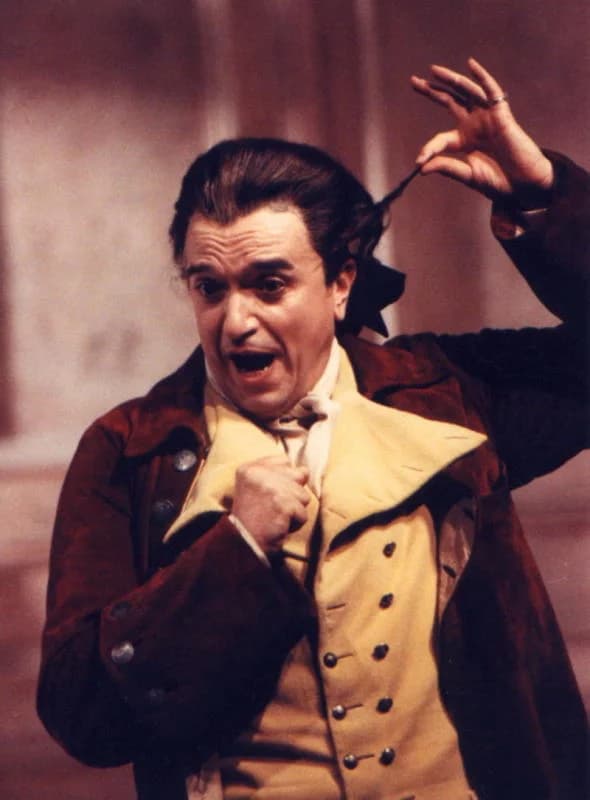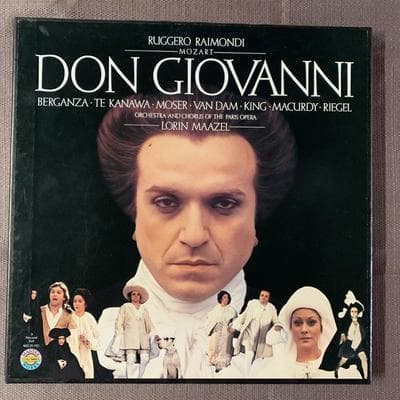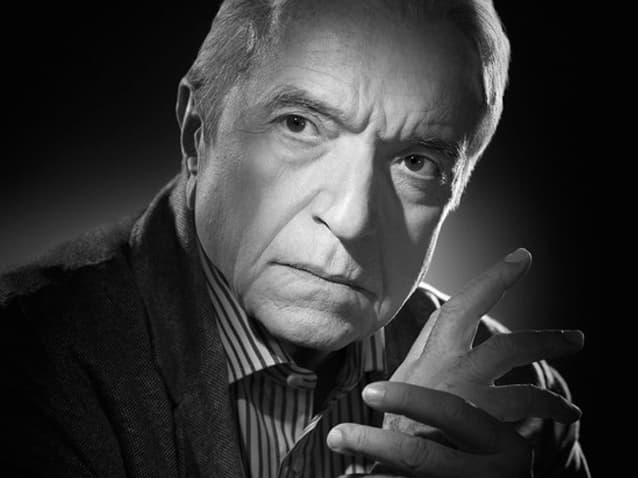The bass-baritone Ruggero Raimondi catapulted to world fame both as an actor and a singer not long after making his debut in Spoleto in 1964. Immediately in the highest demand for his vocal mastery and stage presence, Raimondi worked with conductors Carlo Maria Giulini, Herbert von Karajan, Claudio Abbado and Riccardo Muti. For stage directors Jean-Pierre Ponelle and Giorgio Strehler, Raimondi was the ideal choice for roles in the Italian, French, and Russian repertoire. He also extended his career to leading film appearances in cinema productions and pioneering opera films.
Ruggero Raimondi Sings Mozart’s Don Giovanni, “Il Commendatore Scene”
Bologna

The young Ruggero Raimondi
Ruggero Raimondi was born in Bologna, Italy, on October 3, 1941. He grew up during World War II in a musical family that simply loved opera. Living in Bologna, it was all Verdi. Ruggero remembers being able to sing Verdi melodies from an early age, and it soon became clear that he had a real gift for music. He started taking piano lessons at the age of 7 and continued his pianistic education until the age of 15.
Ruggero auditioned for the conductor Francesco Molinari-Pradelli, whose account of Puccini’s Turandot with Birgit Nilsson and Franco Corelli is commonly regarded as one of the greatest recordings of that work. He quickly told Ruggero, “Forget about the piano. This is an important voice.”
Ruggero Raimondi Sings Verdi’s Don Carlos, “Ella giammai m’amó!”
Vocal Studies

With his voice fully matured at 16, Raimondi was accepted at the Giuseppe Verdi Conservatory in Milan, taking vocal lessons with Ettore Campogalliani. Known for contesting his instructors’ views, Ruggero went on to the Santa Cecilia Conservatory in Rome. Initially, he studied with Teresa Pediconi and subsequently with Armando Piervenanzi, “the last of the true Romans,” as Raimondi calls him.
Within 5 years of study, Raimondi commanded roughly 40 roles in Italian and French, with Mephistopheles in Faust and King Philip in Don Carlo among his favourites. Raimondi entered the National Competition for young opera singers in Spoleto, and after winning the event, he made his debut in the same city in the role of Colline in La bohème in the Festival dei Due Mondi.
Ruggero Raimondi Sings Rossini’s The Barber of Seville, “La Calunnia”
Acting Studies

Ruggero Raimondi in Mozart’s Don Giovanni
Additional opportunities arose at the Teatro dell’Opera in Rome when Raimondi was called upon to substitute in the role of Procida in Verdi’s I vespri siciliani. He was immediately loved by audiences and critics, yet the young singer was very shy at first. However, he quickly realised he also had to become a good stage actor. As he explained in an interview, “To make a product acceptable today for the audience, it must be in a way staged like a theatre piece.”
As Raimondi explained, “You cannot go anymore to the opera to see someone just facing the conductor, and when he has to show God he puts the hand up and to show the land puts the hand down! Today, acting is very important, and to build this up is a question of ensemble work because on stage, you have to work with the other people, with your soprano, tenor, bass, everyone.”
Ruggero Raimondi Sings Puccini’s Tosca, “Te deum”
The Paradox of Acting

In 1777, Denis Diderot suggested that manifestations of emotions on the stage are not great acting, “and that the actor must show self-control to explore first these passions, and then reproduce them.” For Raimondi, the question of whether he becomes the character on stage or is simply portraying one poses an occasional dilemma.
As he explained in an interview with Bruce Duffie, “Sometimes you lose control of the character, and you become so involved that it makes problems to your voice because when you become the character, you don’t think any more of the position of the voice. You have to do it not so strongly and be careful of this note, so you give yourself inside without it being too much. The most wonderful approach is always to drive the character, but sometimes it’s beautiful also to become the character. To die on the stage is wonderful.”
For more of the best in classical music, sign up for our E-Newsletter
